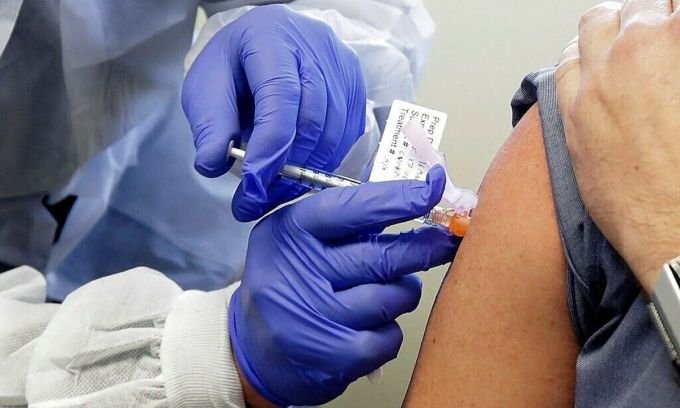
Regeneron antibodies – the cure for Trump
Just three days after pharmaceutical company Regeneron announced the results of testing the antibody mixture in treating Covid-19, this remedy was provided to US President Trump’s medical team.
On October 3, Sean Conley, Trump’s doctor, said the President was `tired but in very good spirits` after receiving an intravenous infusion of Regeneron’s antibody mixture, as well as supplementing zinc, vitamin D,
`It is likely that the President will fully recover,` said Dr. Leana Wen, a medical analyst from CNN and former Baltimore health commissioner.
Regeneron confirmed it provided an 8-gram dose of the drug to the President through an `emergency relief` program.
The antibody mixture, called REGN-COV2, uses two strains created in the laboratory, including a monoclonal antibody targeting the spike protein, and an antibody attacking another part of nCoV.
Monoclonal antibodies are a biological therapy that uses technology to create copies of human antibodies to fight viruses.
Dr. Jeanne Marrazzo, director of infectious diseases at the University of Alabama, Birmingham, said the new results analyzed 275 outpatients out of 1,000 trial participants, but were `very promising.`
Research shows that the number of times patients have to go to the doctor is reduced, and there are no severe cases requiring hospitalization.
Regeneron tested different doses of REGN-COV2 antibody on two groups, immune responders and people with insufficient immune response.
Dr. Jonathan Reiner, CNN medical analyst and expert at George Washington University, commented that the decision to give Trump an experimental monoclonal antibody drug shows how concerned the White House is about his health.
`In fact, the fact that the President used Regeneron’s drug speaks to their level of concern. 7 million Americans have been infected with Covid-19 and basically, no one can use this drug,` Reiner commented.
A vaccine is being tested in the US.
Regeneron is continuing to test with inpatients and its ability to prevent infection in people exposed to nCoV.
`Inpatients with higher viral loads, who do not have an adequate immune response, we expect to have similar clinical outcomes with those patients,` said Dr. Leonard Schleifer, co-founder of Regeneron.
Dr. Claudia Hoyen, an infectious disease specialist with University Hospitals Cleveland Medical Center, also called the results promising.
Jennifer Gommerman, professor of immunology at the University of Toronto, commented: `The dose of the antibody mixture shortens the duration of infection, especially for patients who are unable to produce an antibody response on their own.`
Gommerman, Marrazzo and Hoyen believe that antibody methods support patients who do not have a strong immune response to vaccines, especially the elderly, and are useful before vaccination.
Regeneron is not the only company working on antibody treatments.
Schleifer said Regeneron is negotiating with regulators about initial results.
In June, the US Government invested 450 million USD for Regeneron to produce up to 300 thousand doses of antibodies.


